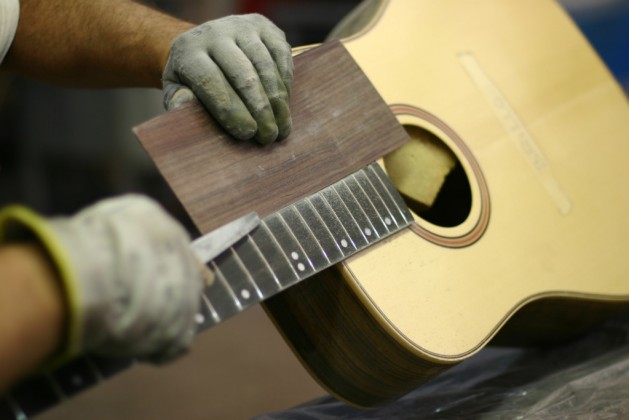The guitarist's memory
Some tricks to improve the memory of the guitarist, and avoid mistakes playing the guitar, especially in public.
It is very common to take the guitar and start playing a work that has not been played for years, and without knowing how, the fingers go to the correct place. Sometimes, neither the music nor the melody is remembered, but the muscular memory acts.
In day-to-day life, the memory of the guitarist is very important. It is a process which must be worked in a constant way and that sometimes plays a dirty trick on us.
In the learning process of the different pieces or musical themes, several types of memories participate, since there are different ways used by the brain to collect information.
When a new composition is studied, you work the ear, the eyesight, the positions, the music, and even the sensations or the elements which arise in the process. An example could be the elements of technical difficulty.
Exactly, all these elements which are worked in the study of a new composition must be taken into account and treated as different available memories.
As they act all together, we can hardly identify if any of them is failing. Therefore, when it is required, it will not be available.
For that reason, an exercise that should be carried out is to separate each of these memories. And now the question is: how?
Auditory memory
In the case of the hearing, the guitarist must be able to sing the entire song, from the beginning to the end. If he cannot do it, it is that something is wrong and he needs to work.
Muscular or positional memory
Regarding the muscle memory, you can improve it isolating the sound. You have to be able to play an entire piece without listening to the guitar; otherwise, it is an evidence of something goes wrong in the guitarist's memory.
In order to isolate the sound, helmets can be used while you are studying to avoid hearing anything while you are playing. Another option would consist in putting a cloth on the fretboard to mute the sound of the guitar.
In addition, there are guitarists who tune the guitar with a different tuning and study. The disadvantage of this option is that listening to the composition using an instrument out of tune is unpleasant.
To verify the positional memory, you can also place some type of marker in fret number seven.
Musical memory
With regard to the musical memory, an exercise may be to take the score and visualize the different movements and positions, while you are reading the score without any instrument.
In short, you can carry out any of these exercises to differentiate the several retention processes in the guitarist’s memory. So that, when you require it, it can be used.



